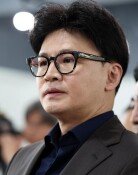U.S. plans troop cut, challenges await South Korea
U.S. plans troop cut, challenges await South Korea
Posted May. 24, 2025 07:20,
Updated May. 24, 2025 07:20
The Wall Street Journal reported May 22 that the U.S. Department of Defense is considering relocating approximately 4,500 of the 28,500 troops stationed in South Korea to other Indo-Pacific locations, including Guam. The plan is part of an unofficial reassessment of U.S. policy toward North Korea and has not yet been presented to President Trump. The South Korean government said any changes to U.S. Forces Korea (USFK) require mutual consultation, and no discussions have occurred between the two countries.
The proposed troop reduction is seen as one of the key “Trump risks” emerging during his second term. During his first administration, President Trump used the threat of USFK withdrawal as leverage to pressure South Korea for increased defense cost sharing, calling the country a “money machine.” The plan appears linked to his evolving North Korea policy and could serve as a bargaining chip in future negotiations with Kim Jong Un.
The Pentagon is developing a new National Defense Strategy prioritizing homeland defense and deterring China. As U.S. forces are repositioned across the Indo-Pacific with a focus on countering China, adjusting USFK troop levels may be a relatively minor issue given the shifting security dynamics on the Korean Peninsula. Elbridge Colby, undersecretary of defense for policy and reportedly involved in drafting the strategy, has emphasized the central role of South Korean forces in countering North Korean threats. The U.S. may therefore press Seoul to allow greater “strategic flexibility” for USFK, enabling deployments beyond Peninsula-focused operations.
With South Korea’s new government set to take office 10 days after the presidential election, trade talks with the U.S., including tariff adjustments, are expected to begin immediately. Observers anticipate a comprehensive negotiation format, with Trump potentially linking national security issues such as troop reductions, strategic flexibility, and defense burden sharing. Meanwhile, North Korea, having advanced its nuclear and missile programs, is modernizing its conventional forces with Russian support. The incoming administration will need to be fully prepared to safeguard the military and economic alliance with the U.S. while deterring North Korean provocations.



![[단독]김경 “1억원 줄때, 강선우도 함께 있었다” 자수서](https://dimg.donga.com/c/138/175/90/1/wps/NEWS/IMAGE/2026/01/14/133148772.5.jpg)



